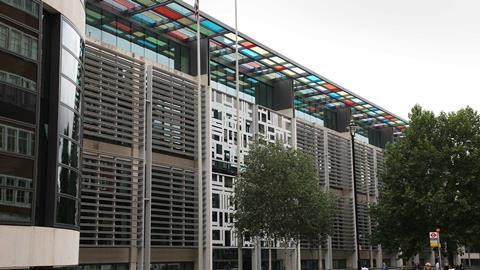Earlier this year, Covid-19 threw the UK’s immigration landscape into disarray. Travel restrictions, reduced working capacity at the Home Office and temporary shutdown of third-party providers caused much uncertainty for those trapped overseas and those in the UK. Added to this were the loss of jobs, salary reductions and individuals no longer being able to meet the requirements of their stay. Below we consider some of the key measures the Home Office introduced over this period for overseas nationals with time-limited restrictions in the UK.


Short-term extensions
From early 2020, in increasing numbers, countries restricted travel as the Covid-19 crisis escalated. Many overseas nationals in the UK were constrained by restrictions on movement. The UK government advice in March was to ‘stay at home’ and not travel unless it was essential to do so. Following this guidance meant individuals risked being in the UK as overstayers, which could have far-reaching implications – for example on their right to rent, work, access healthcare and return to the UK in future.
The Home Office introduced Covid-19 guidance, initially allowing those unable to return to China to request an extension to their immigration permission until 30 March 2020. This policy was extended on several occasions, as more individuals were affected. Ultimately all nationalities, if unable to leave because of travel restrictions or self-isolation, and whose immigration permission had or would expire between 24 January to 31 July 2020, were allowed to request an extension of permission until 31 July 2020.
To date, there is nothing in law which confirms the basis for extensions being granted. Nor have individuals received any physical evidence of the extension. This has created difficulties for people proving status to employers and landlords. Retrospective provisions are expected to be introduced in the Immigration Rules this month.
In-country applications
Concessions were introduced allowing those in the UK whose leave was expiring to apply for long-term permission, in circumstances where such applications would normally need to be made from overseas. In addition, some frontline health workers and their family members were able to apply for a 12-month extension.
An identity verification application was also introduced. This allowed many individuals to have their biometrics reused by submitting information on a mobile application rather than attending a UKVCAS biometric enrolment appointment in person.
While these are welcome provisions, the policy behind them has been vague, leading to confusion for individuals needing to meet the requirements for an initial overseas application, but having to navigate forms and processes designed for those meeting leave to remain requirements.
‘Grace period’
The Home Office announced that no further extension would be granted beyond 31 July. However, confusingly, those whose permission expired on or before 31 July were provided with an extra month’s ‘grace period’ to allow them to make arrangements to leave the UK. The guidance merely implied that automatic extensions were granted until 31 August. What was even less clear was the impact on individuals whose leave expired in August who had not previously obtained a Covid-19 extension. It is uncertain if their leave had been automatically extended until 31 August and, if so, on what basis.
Those unable to leave the UK in August could make an ‘exceptional indemnity’ request for additional time to stay in the UK (within days this was relabelled as ‘exceptional assurance’, which did not make the position any clearer). This did not grant further permission to the individual to stay in the UK, but was intended as a short-term protection against adverse action or consequences which would follow by being an overstayer.
Guidance was later amended to state that those whose leave expired between September and October could request exceptional assurance and confirmed that the previous conditions of leave would continue to apply, enabling these individuals to remain working and studying in the UK. This was beneficial, but there was no precision on the legal basis for the conditions of leave remaining in place.
Challenging times
The pandemic has taken us all by surprise and it remains unclear how long the crisis will endure. Understandably, the Home Office has had to update its policy in view of this and, in several areas, we have seen a pragmatic approach being applied. However, as a result of the policy changes there have often been more questions than answers. Information should be clear and unambiguous as to what constitutes a grant of permission and what does not. Individuals need time to plan, to apply for further permission if needed, and to prove status to employers, landlords or others. Any time-limited policies need to be updated well ahead of time to avoid individuals fearing reprisals of overstaying their permission.
With the ‘second wave’ now here, coinciding with the end of EU free movement and the introduction of the new immigration system, we hope the Home Office will do more to protect overseas nationals affected by Covid-19 in the UK and provide reassurance. Incorporating existing measures into the Immigration Rules and providing insight on new measures covering the remainder of 2020 would provide more straightforward guidance for us all, as we prepare for the imminent changes to the immigration system.
Laura Devine is the founder of immigration law specialist Laura Devine Solicitors. Zeena Luchowa is a senior solicitor at the firm
































2 Readers' comments